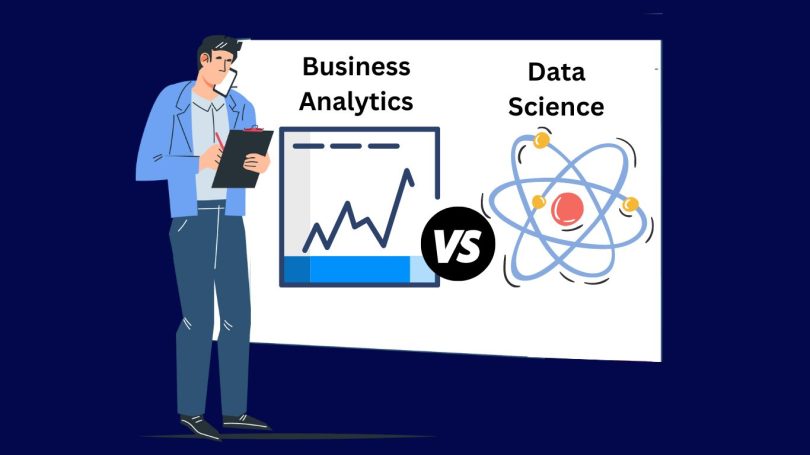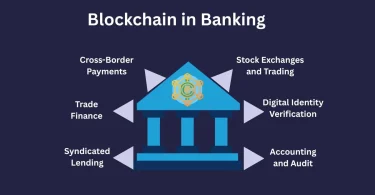Business Analysis and Data Science share the common means of gathering and processing excessive volumes of data in order to derive a specific result, but both have unique features.
Data Science being referred to broadly as the umbrella for Business Analysis is recognized. Similarly, in broad-spectrum terms, Business Analysis and Data Science are separate areas of study. However, both of them deal with different business issues through well-established methodologies and optimization of predictive algorithms to predict specific outcomes.
The next segment of this blog will explore the distinction between data science and business analytics.
What is Business Analytics?
A field that combines information analysis and statistical techniques to discover useful information and improve business performance is the field of business analytics. This procedure encompasses the in-depth collecting, ordering and analysis of data from various sources to study the hidden patterns, relationships and connections.
The main goal of business analytics is to uncover and address unique business challenges, improve operational performance, identify potential growth opportunities, and notify strategic decision-making processes by providing practical insights and recommendations.
Main Roles of a Business Analyst?
A business analyst is a communicator and facilitator, or he/she acts as a mediator; their goal is to improve efficiency and effectiveness through technology, strategy and analysis.
Interpretation: Specified that businesses today deal with significant volumes of data, business analysts have to hone the skill to clean and cure data, which then is used for the interpretation.
Data Visualization and Storytelling: It serves as a visual depiction of data and constitutes a crucial aspect of business analysis. Business analysts use visualizations such as graphs, charts and maps to communicate the data insights which are easy to understand and depict trends, anomalies or patterns within the data.
Analytical Reasoning Ability: Critical thinking, logical reasoning, communication skills, research and data analysis are the main skill set for this job. It is through these competencies that business analysts apply descriptive, predictive, and prescriptive analytics in business contexts and therefore, they are able to provide a solution to the business challenges.
Mathematical and Statistical Skills: Familiarity in handling, sorting and decoding numerical data is a necessity when it comes to modeling, inferring, estimating and forecasting within the field of business analytics.
Written and Communication Skills: Being good at communicating is fundamental to business analysts because it helps them to explain their recommendations to managers, which in turn ends up in the line of decision-making and the creation of business opportunities.
What is Data Science?
Data Science appears to be a multifaceted discipline that integrates data processing, statistical analysis, machine learning, data visualization and computer science to unlock information and insights from both structured and unstructured data sources.
The Data scientists use a conglomeration of methodologies, which includes data exploration, data preprocessing, predictive modeling and data visualization. This activity leverages existing data, makes analysis possible and provides the necessary insights for informed decision-making and the solution of complex challenges in various industries. In addition to the initial phases of data acquisition and cleaning, Data Science encompasses all subsequent activities like holistic data analysis and interpretation.
What is a Data Scientist’s Job?
Data scientists are involved in applying ML algorithms to different types of data that include numbers, text, images, video and audio to get comprehensive insights. The article in the Harvard Business Review, by Hugo Bowne-Anderson, talks about a data scientist who lays a robust data foundation that enables data-driven analytics and employs online experiments and other methodologies to build sustainability in growth.
Besides, data scientists build machine learning pipelines and develop tailored data products that help in gaining a better understanding of the business, making customer insights and decision-making processes more accurate.
It includes infrastructure construction, testing, machine learning applications, decision-making frameworks, as well as product development, which are all data-driven.
What are the Data Scientist’s Abilities?
The core skills requisite for data scientists encompass several domains.
Statistical analysis: An adequate level of knowledge in the area of statistical tests and probability estimators is crucial for both pattern recognition and anomaly detection.
Computer science and programming: Since data scientists deal with large datasets on daily basis, a prerequisite is to be proficient in computer programming languages like Python, R and SQL for developing solutions to complex data analysis problems.
Machine learning: Data scientists should be capable of working with various machine learning algorithms and statistical models for automatic learning to be achieved from data sets.
Multivariable Calculus and Linear Algebra: Multivariable and linear algebra are the pillars of model construction and optimization. A solid grounding in these topics is vital for this procedure.
Data visualization and storytelling: Data scientists can communicate useful insights to several stakeholders who are either technically oriented or non-technical using data visualization tools.
Comparison of Business Analytics with Data Science:
Business Analytics:
- Business Analytics is the mathematical analysis of business data that helps to find the hidden patterns.
- Most of the data it employs are structured.
- Statistical methodologies are the main focus; coding is not given much attention.
- Mainly research follows statistical ideas.
- Trends and patterns that may be peculiar to the way businesses are run are the focus point for this study.
- Typically implemented in sectors of the economy like “finance”, “health care”, “marketing”, “retail”, “supply chain” and “communications”.
Data Science:
- Data science is the all-encompassing study of data that covers statistics, programming and technology.
- Bases on both structured and unstructured data sources.
- Coding has a considerable contribution to the field, which combines analytics with powerful computer science skills.
- However, the ascending step is a statistical analysis that is performed following coding procedures.
- It takes into account as many trends and patterns as it can.
- Generally deployed in sectors like “e-commerce”, “finance”, “machine learning”, “manufacturing” etc.
Conclusion:
This blog entry delineates the fascinating dominions of Business Analytics and Data Science. Although they have data mining in common, however, are different in terms of what they provide and what kind of career paths they are for. Business Analysts are very good at turning complicated data into practical business solutions that a business can act on. The combination of their skills will be beneficial in the areas of statistical analysis, communication and project management. They command powerful tools such as machine learning and programming languages to distill knowledge from several data repositories, inclusive of unstructured data. Do you want to have the opportunity to be both strategic and communicate clearly, or do you have a passion for the technical intricacies of data manipulation? The choice is yours. Move further into Business Analytics or Data Science to explore the varying domains of data-driven possibilities.




Leave a Comment